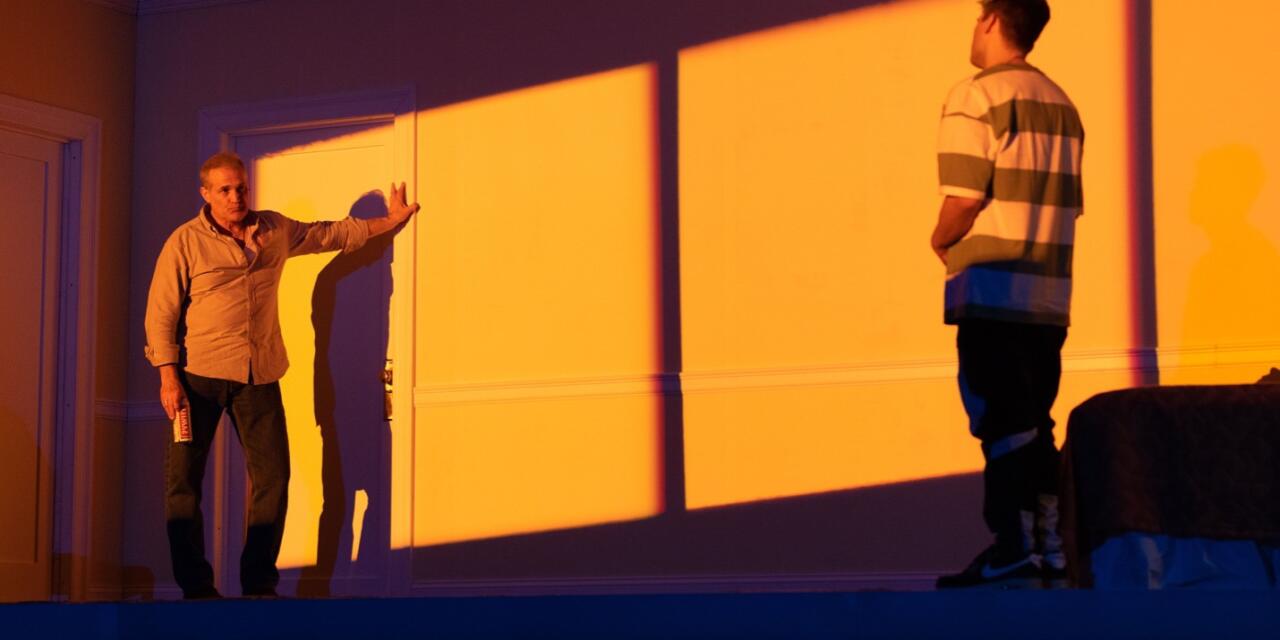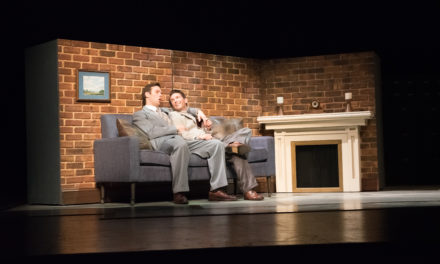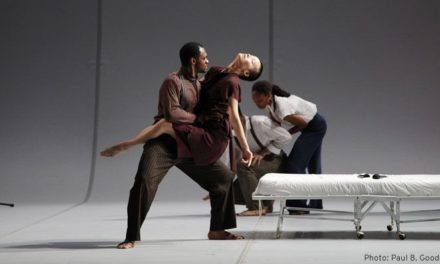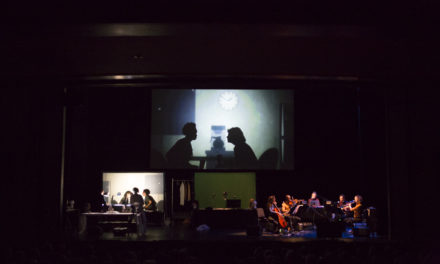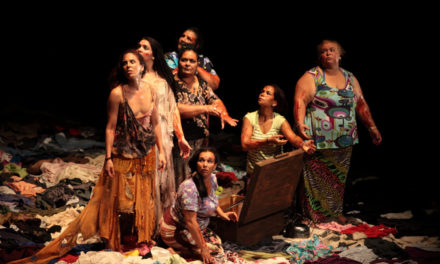A double bill by Irish composer Emma O’Halloran and her uncle, librettist Mark O’Halloran, Trade/Mary Motorhead, presents two psychological portraits of “extraordinary ordinary people” in the words of Beth Morrison, artistic director of the PROTOTYPE festival. Both operas explore invisible histories of marginalized characters, unseen by the greater society they live in.
Trade
Trade is an introspective piece centering on an encounter between Older Man and Younger Man in a guestroom in North Dublin. Despite their age difference, they are both fathers, and have heterosexual relationships, but Older Man frequents Younger Man for sex. Initially, Older Man’s awkward small talk was met with monosyllabic responses from Younger Man who sat casually on the bed. Despite having met up several times, this particular encounter was different. They became more vulnerable with each other as they reveal more of their deepest secrets and fears. Eventually, Older Man confesses that he has fallen in love with Younger Man, which sends him reeling in shock.
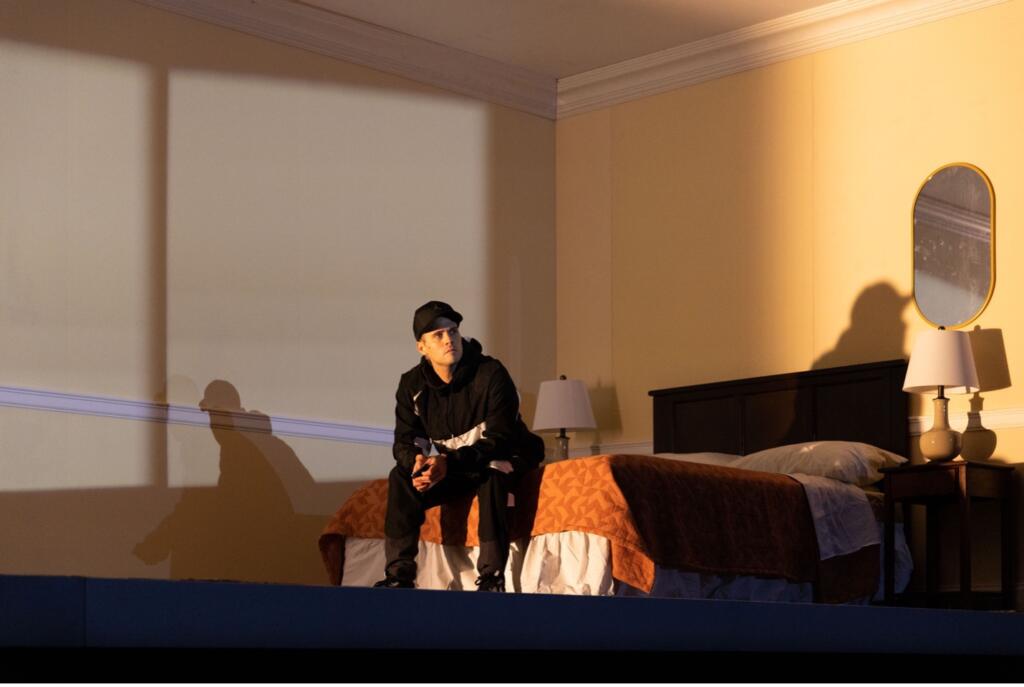
Younger Man sitting on the bed, while engaging in awkward small talk with Older Man. Photo Credit: Maria Baranova.
This intimate situation is accompanied by a transfixing visual idiom. The abstract, poetic play of light captures the colors of the city, and further provides a window into the emotional landscape of its characters. Director Tom Creed revealed in the talkback session that this transporting quality was inspired by Nan Goldin’s photography of intimate spaces, which was often pervaded by a heightened sense of melancholy.
Creed’s visual idiom is echoed in the distorted guitar sounds that pervade O’Halloran’s poignant musical landscape. She brings out the best in both singers, the gravitas of Marc Kudisch’s baritone voice, and the soaring high notes of tenor Kyle Bielfield. Sexual tension finds expression in the music that fills in the spaces between words. The unrivaled onstage chemistry between both men compels audiences to anticipate what might unfold between them.
An acoustic standout lets us in on Older Man’s vulnerability as he struggles to confront his growing feelings for Younger Man. As he responds, “I’m alright,” his high, trembling pitches gives him away. The music knows, and it’s telling us that Older Man is lying, for he is too afraid of Younger Man’s response.
Mary Motorhead
Mary Motorhead, on the other hand, is a monodrama revolving around a fiery woman who is serving an eighteen-year sentence in Mountjoy prison for killing her husband. She recounts her own secret history, which makes her who she is, and why she did certain things. Like in Trade, music does much of the storytelling in Mary Motorhead. In this tableau-like unfolding, we hear Mary move through various soundworlds, with heavy use of electronic music, alluding to the 1980s rock scene alongside strobe lighting effects, which Mary was closely associated with in her rebellious years.
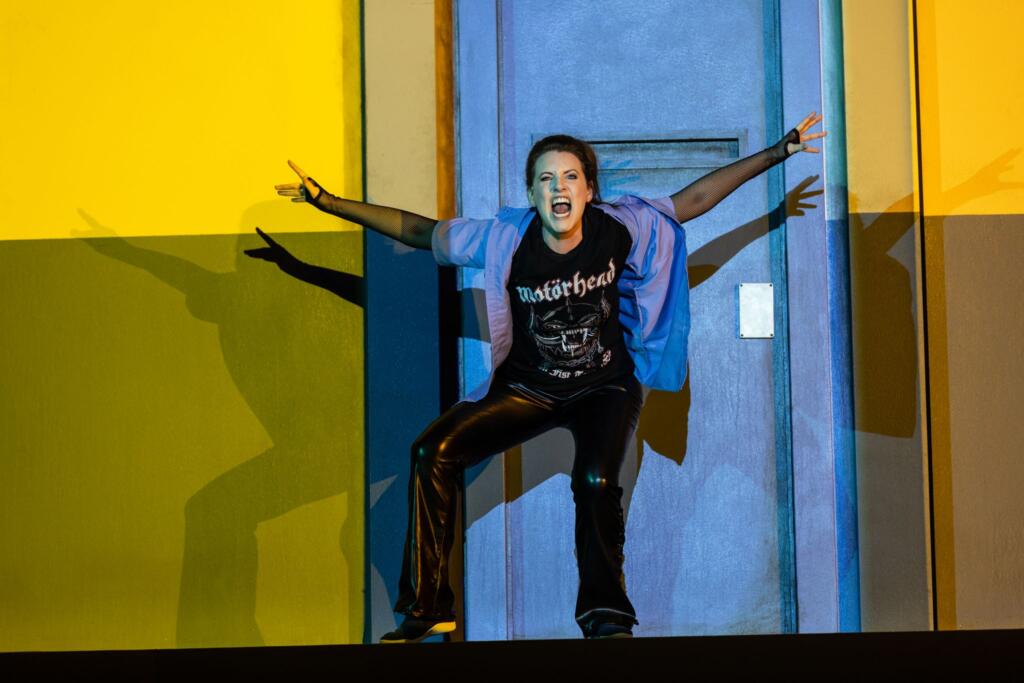
Mary Motorhead played by Naomi Louisa O’Connell. Photo Credit: Maria Baranova.
O’Halloran revealed in the talkback session that the character is written for the adventurous actress, Naomi Louisa O’Connell, who lends a fierce, three-dimensional portrayal of Mary Motorhead. This woman who resembles Carmen in her wild abandon and unapologetic existence, subverts historical representation of women characters in opera.
This provocative pair of operas, which leaves many unsettled at the end, exemplifies the forward-looking ethos of PROTOTYPE festival, which never fails to confront difficult topics head-on with creative flair.
This post was written by the author in their personal capacity.The opinions expressed in this article are the author’s own and do not reflect the view of The Theatre Times, their staff or collaborators.
This post was written by Jingyi Zhang.
The views expressed here belong to the author and do not necessarily reflect our views and opinions.

